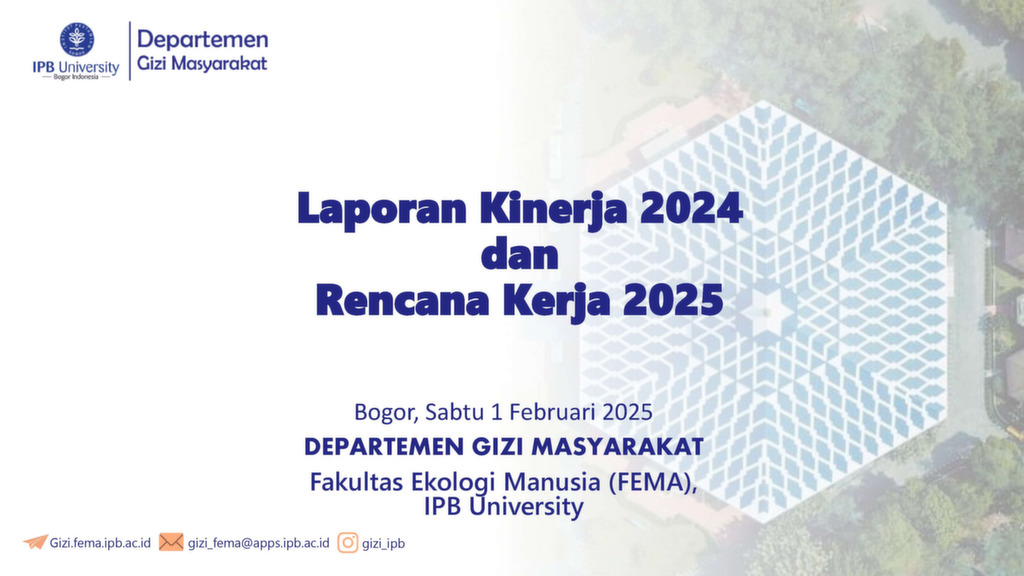
The Department of Community Nutrition, Faculty of Human Ecology (FEMA), IPB University, has completed its 2024 performance evaluation with significant achievements. Key accomplishments include improvements in education quality, research, and community service. Major successes include renovations of laboratory and lecture room facilities, procurement of advanced laboratory equipment, and an increase in scientific publications at both national and international levels. Additionally, collaborations with domestic and international institutions have been expanded to support the academic and professional growth of students and faculty members.
In the academic field, the department has partnered with Universiti Malaysia Sabah (UMS) to offer the Nutritional Anthropology course and co-host international seminars. The Visiting Professor program has been strengthened by inviting academics from top universities worldwide. For 2025, planned initiatives include a Summer Course program, an international workshop on food waste, and a global scientific conference aimed at enhancing academic exposure and student achievements.
Regarding educational innovation, the department has implemented a scheduled proposal review system to accelerate student thesis completion. The Recognition of Prior Learning (RPL) program for Dietitian Professionals is also being expanded to enhance graduate competencies. Additionally, a joint degree program initiative with Universiti Putra Malaysia (UPM) for the Master’s program in Nutrition marks a strategic step toward broader academic development. The department is also committed to enhancing its scientific journal facilities to boost research productivity among faculty and students.
For 2025, strategic plans focus on achieving international accreditation, optimizing teaching and learning infrastructure, and strengthening global networking. The department aims to increase the number of international students, implement Outcome-Based Education (OBE) programs, and engage alumni in career development initiatives. With these strategic measures, the Department of Community Nutrition is optimistic about continuing to be a leading center in nutrition and public health at both national and international levels.
Please see the detailed report here
Pengunjung
- Total visitors:692580
- Visitors today:288
- Visitors last week:2381
- Visitors per month:1138
- Visitors per day:299
Kegiatan Departemen
ICNF
Summer Course
Link
Institut Pertanian Bogor
Kemenristek Dikti
Fakultas Ekologi Manusia
Departemen SKPM
Departemen IKK
Perpustakaan IPB
Repository IPB
Sistem Informasi Akademik IPB
Sistem Manajemen Kinerja IPB
Penerimaan Mahasiswa Baru IPB
Help Center IPB
Kinerja Dosen
Panduan Akademik IPB
MBKM
Simawa
Simbelmawa
PD-DIKTI
DIGISIGN
SIPPM


